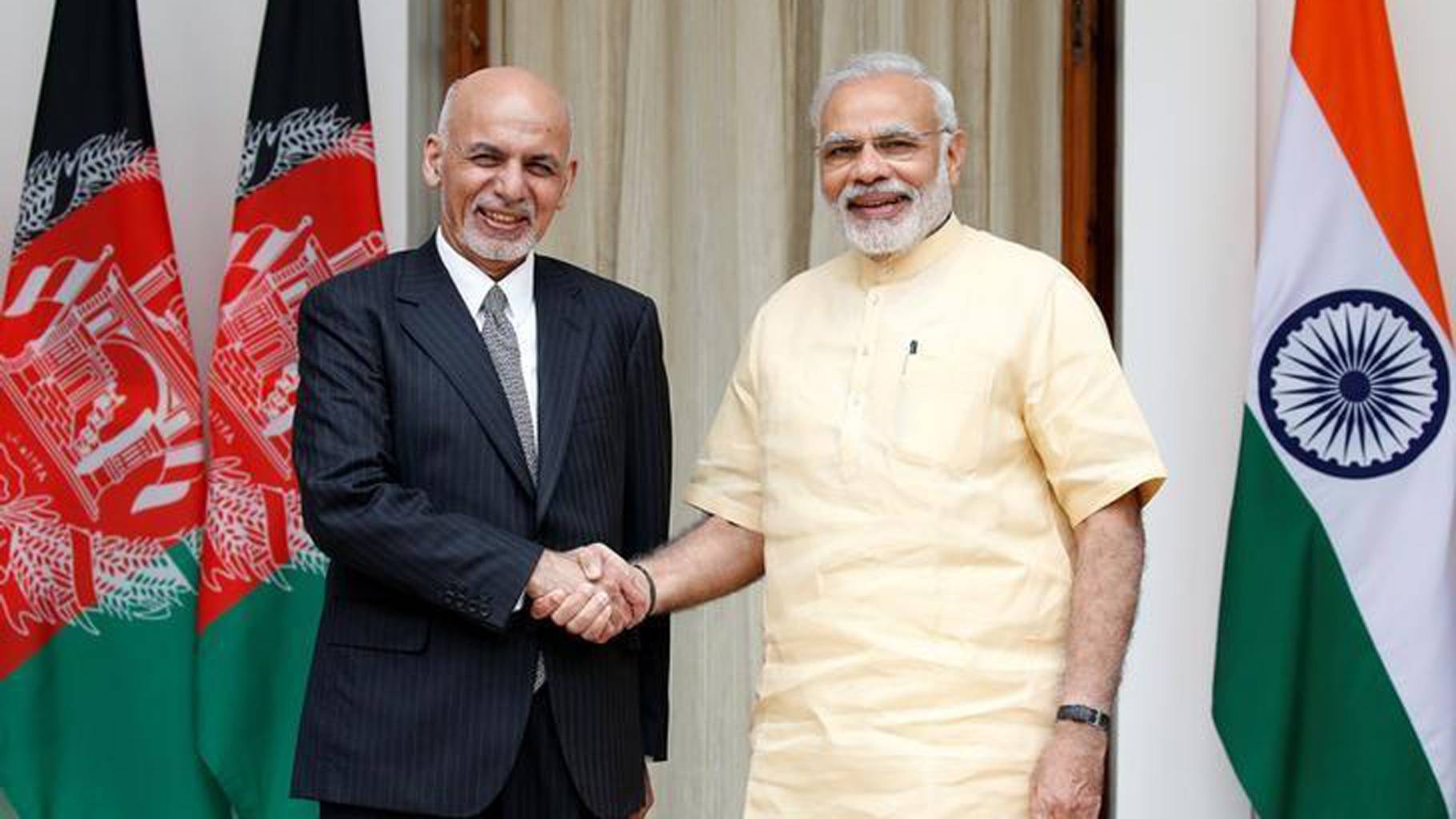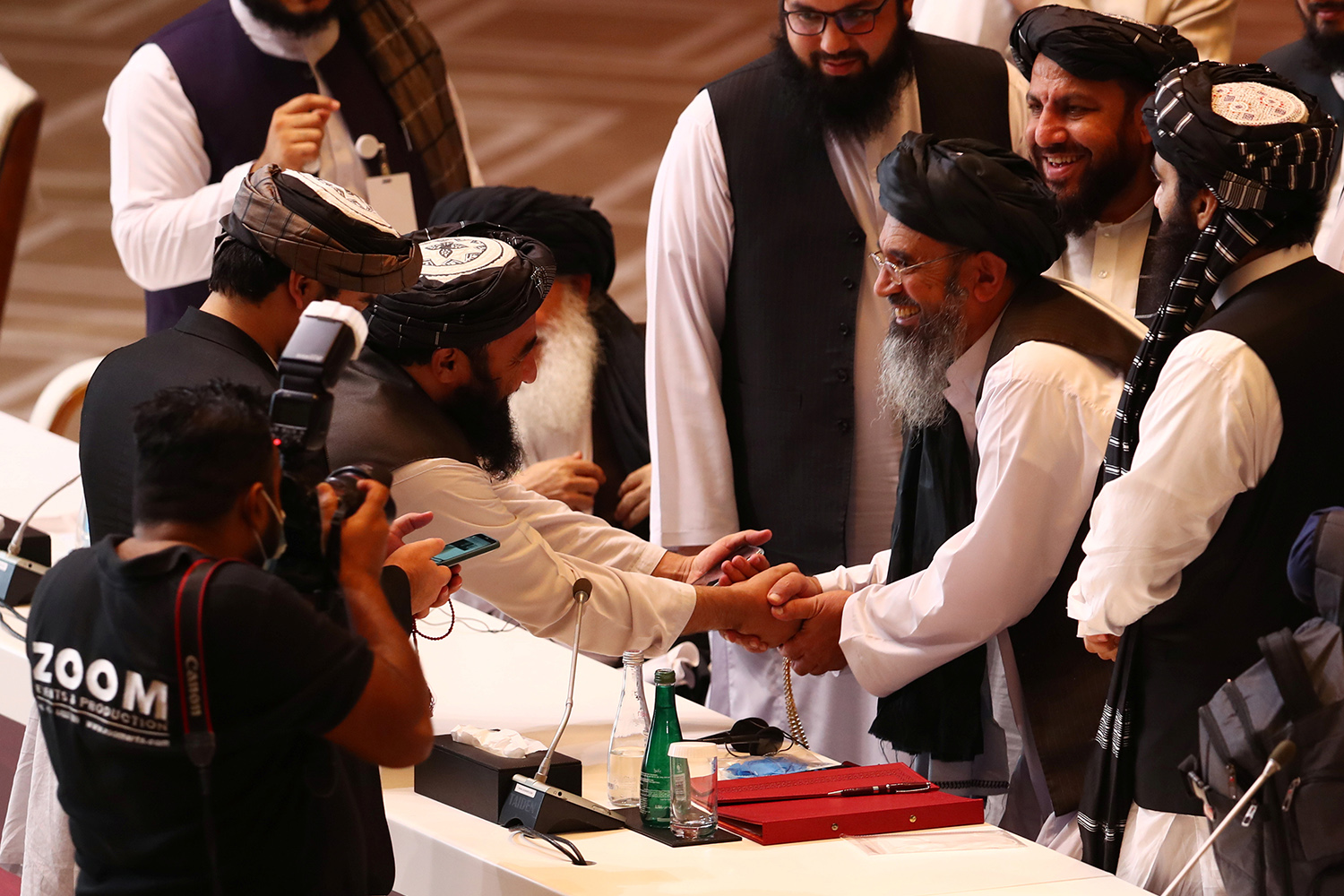Context
After numerous promising starts and hard stops, the Afghan peace process is once again making progress. The initiation of intra-Afghan peace process is now almost certain despite the hick-ups related to the release of last tranche of Taliban prisoners held by the Ashraf Ghani’s government. While many challenges have been overcome, several intricate obstacles remain, such as the status of foreign troops withdrawal, the shape of future government, women rights, and the role of Sharia in governance, etc.
However, the internal dynamics of Afghanistan is only one aspect of the puzzle. At this juncture, the external environment tied to the fast moving regional and global dynamics appears more critical. Politact has long contended that while there is an over emphasis on understanding the Afghan quagmire in a compartmentalized way, it is very much intertwined to the tussles of the regional and global balance of power. And this external context may prove to be more consequential. In this, the rise of China and affairs of Middle East are paramount, where some key Arab nations are on a trajectory of normalizing ties with Israel.
China and India are central to many changes taking shape in the regional geopolitics, whether it be the tension on the Line of Actual Control (LAC), the potential China-Iran economic and security deal, or the China-Pakistan economic corridor (CPEC). In all of these, the outcome impacts India adversely, and the US by association.
How the American elections play out and impact the Afghan future, and the associated US-Pakistan relations, is equally critical. After a rocky start, during the Trump administration US-Pakistan ties have remained normal and absent the tumult witnessed during the Bush and Obama administrations.

India and Afghanistan
India has most to lose if there is a resolution to the Afghan conflict. It benefits from the long-term entanglement of Pakistan but this also means the US has to expend substantial blood and treasure to maintain its presence there. With Pakistan preoccupied in dealing with Afghanistan and extremism, India could ensure that the thorny issue of Kashmir can be resolved as it wishes.
However, that premise has tumbled ever since US and Taliban agreed on a peace deal in February. India perceives the treaty as not addressing its concerns and interests in Afghanistan and the growing influence of AQIS (Al Qaeda in the Indian Subcontinent) in India and Kashmir. In the emerging scenario, the Taliban are likely to become a partner and bulwark against ISIS and AQ inspired extremism, a goal shared by US, Taliban and Pakistan.
On the other hand, the abolishment of the special status of Kashmir on August 5 last year, and the brutal lockdown that ensued, India has further aggravated the situation. Through such draconian steps, India has exhibited that it has little respect for UN resolutions or human rights and this will play right in the hands of extremists.
Nonetheless, to placate Indian concerns, US Afghan Special Representative Zalmay- Khalilzad stated in May that India should establish direct talks with the Taliban to address concerns. While talking to The Hindu, he added, “India is an important force in Afghanistan and it would be appropriate for that [India-Taliban] engagement to take place”.
India is caught in a quandary on whether to establish direct talks with the Taliban, which it believes it to be the proxy of Pakistan. On the other hand, Pakistan is improving its ties with the Afghan government in earnest. It is not clear at this point if India has bought in to the emerging Afghan peace process. Meanwhile the nightmare of being blacklisted by the Financial Action Task Force (FATF) still hangs in balance for Pakistan as its efforts to bring Madrassa’s in the mainstream are making headway.

China-India-Iran Dynamics
The tensions between China and India along the LAC escalated in June when 20 Indian soldiers were killed in a clash in Ladakh. Numerous rounds of talks have failed to alleviate tensions. If the standoff extends to India taking steps in the South China Sea, then it is likely to complicate matters in Afghanistan and along the Line of Control (LOC) as well. But one thing is clear, Chinese actions along the LAC has shown that India cannot act with impunity and compromise Chinese interests in Afghanistan or Pakistan and that is where CPEC comes in the picture.
While India has been attempting to globally isolate Pakistan, CPEC has provided the nation a much need shot in the arm. The country has paid a heavy economical and societal price for more than a decade of war against extremism.
China also wants to bring Afghanistan into its One Belt One Road Initiative and the economic benefit of that far outweigh anything India can offer to the war-ravaged country. Afghanistan has hedged its bets, but with India being asked to pack-up its much-delayed infrastructure, rail, and energy projects in Iran, that dynamics is changing. Iran is instead moving forward with economic and security deal with China, that will bring $400 billion investments over 25 years. Afghanistan’s strategic calculation will obviously shift as a result of these developments.
Simply put, from the Chinese perspective it can no longer afford Indian shenanigans on the LAC, LOC, and in Afghanistan without India paying a price for it.
The Dynamics of Middle East
In addition to putting pressure on Pakistan through organizations such as FATF, India has consistently worked to undercut its traditional ties with the Gulf region and in turn weaken its position on Afghanistan and Kashmir. Through its new found economic clout and alliance with Israel and the US, India has had success in this.
Not only that, this unified juggernaut has also resulted in pushing some key Arab nations on a path to normalize ties with Israel while the non-Arab nations of Turkey and Iran stand in stark contrast.
In theaters like Libya, Turkey and Qatar are backing the UN supported unity government, while Khalifa Haftar has the blessing of UAE, Saudi Arabia, and Egypt. This is pretty much the same configuration that applies to the Arab-Israeli conflict. Will this alignment also be matched in the South and Central Asian theater of operations, and Afghanistan, is yet to be seen but the telltale signs point in that direction. And in this is the reason why the potential China-Iran security and economic deal carries serious repercussions.
Iran and Pakistan are two nations that are close Chinese allies and significant part of its One Belt One Road Initiative. Iran, including Turkey, are also strongly opposed to any normalizing of ties with Israel without the resolution of the Palestinian conflict, and are vocal about India atrocities in Kashmir.
The Great Game
Afghanistan is a high-stake proposition. Like in the past, it will be the regional and global balance of power tussles that will play an instrumental role in determining its future. If the Afghan government assesses that they gain more by going along with the One Belt and One Road initiative, like Pakistan and Iran, then its game over. And in such an eventuality, Indian role will be relegated.
The question becomes why would the US want to leave Afghanistan to other powers. Under the American First doctrine, perhaps it wants to focus on other flanks where it enjoys an advantage, such as the South China Sea and the Middle East. Plus, US is extremely perturbed with its allies that desire it to lead the fight to protect their interests but are unwilling to commit resources and troops whether it be NATO or India.
If elections all go well, will this change if Biden wins? Will Americans once again start to lead where the allies are unwilling? Will the world return to the form of globalization where the allies benefit more at the cost of US? The fate of these inquiries will be settled first in the elections and the Americans are going to base their vote on their economic prospects and not on the foreign policy premises.





